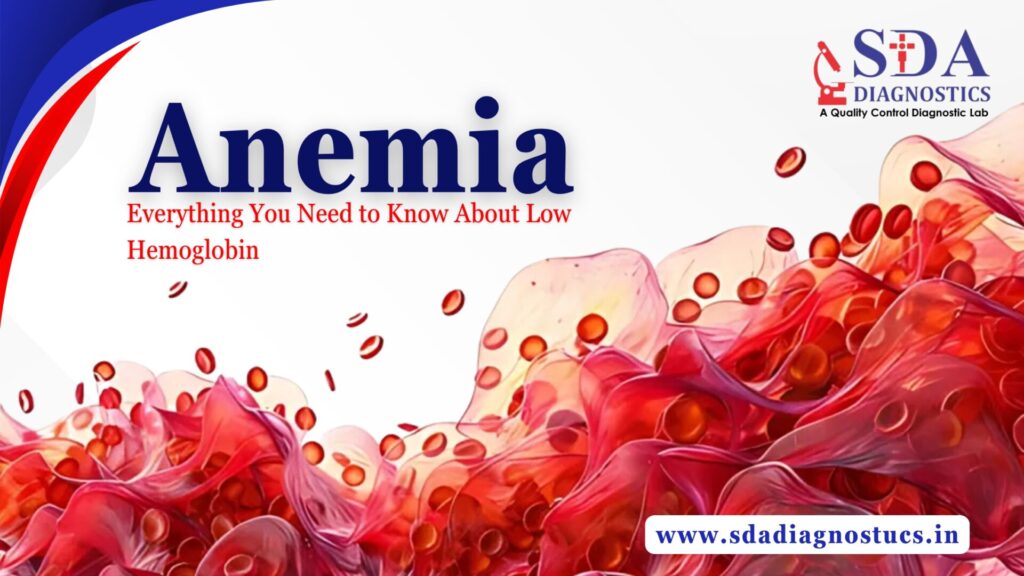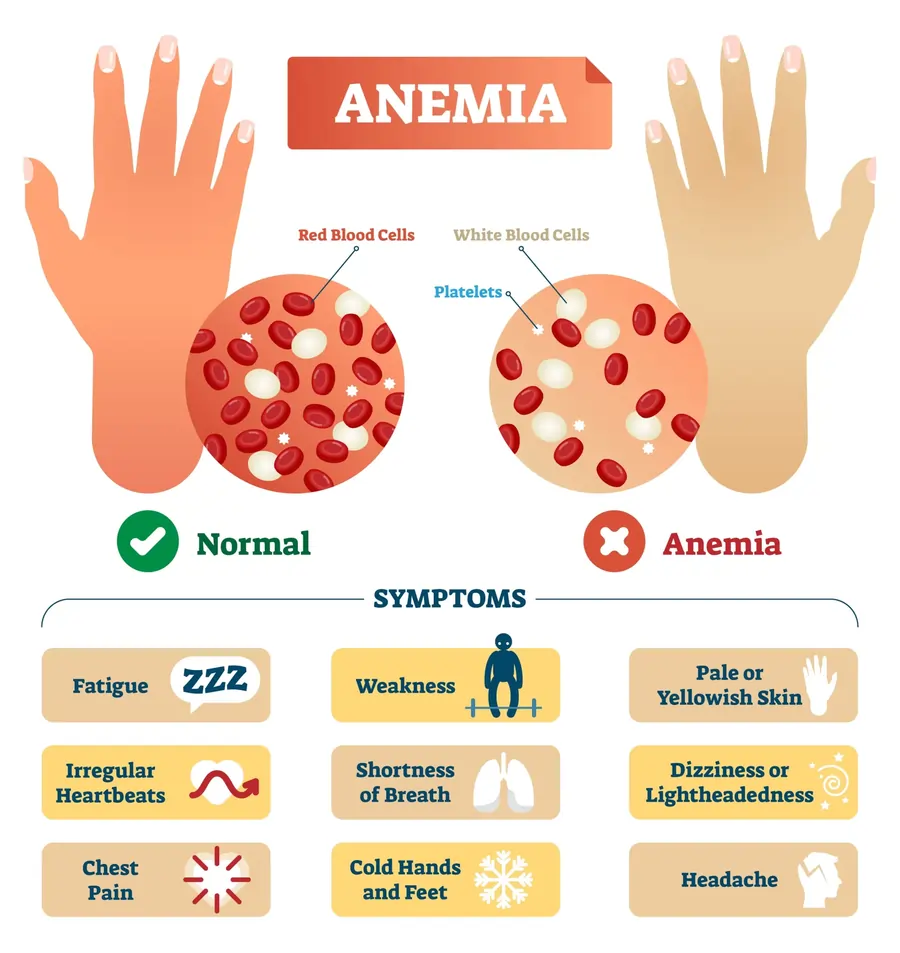Anemia: Everything You Need to Know About Low Hemoglobin

Anemia is a common condition that affects millions of people worldwide. It occurs when the body lacks enough healthy red blood cells to carry oxygen efficiently. One of the main indicators of anemia is low hemoglobin levels, which can lead to fatigue, weakness, and other health problems. If you are experiencing symptoms of anemia, getting a blood test at SDA Diagnostics Meerut can help diagnose the condition early.
What is Anemia?
Anemia happens when there is a deficiency of red blood cells or hemoglobin in the blood. Hemoglobin is an essential protein in red blood cells that transports oxygen throughout the body. When levels are too low, the body’s organs and tissues do not get enough oxygen, leading to various symptoms.
Causes of Anemia
There are different causes of anemia, including:
Iron Deficiency – The most common cause, occurring when the body doesn’t get enough iron from food or due to blood loss.
Vitamin Deficiency – Lack of vitamin B12 or folate can affect red blood cell production.
Chronic Diseases – Conditions like kidney disease, cancer, or infections can lead to anemia.
Blood Loss – Heavy menstrual bleeding, surgery, or injuries can result in low hemoglobin levels.
Bone Marrow Disorders – Diseases like leukemia or aplastic anemia affect blood cell production.
Genetic Conditions – Some inherited disorders, such as sickle cell anemia, impact red blood cell function.
Symptoms of Low Hemoglobin
People with anemia may experience:
Constant fatigue
Weakness
Pale skin
Shortness of breath
Dizziness or lightheadedness
Irregular heartbeat
Cold hands and feet
Headaches

Diagnosing Anemia (Low Hemoglobin)
Doctors diagnose anemia through blood tests, mainly checking hemoglobin and red blood cell count. Additional tests may be required to determine the underlying cause.
Treatment Options for Anemia
Treatment for anemia depends on the cause:
Iron Supplements – Prescribed for iron deficiency anemia.
Dietary Changes – Including iron-rich foods like spinach, red meat, eggs, and beans.
Vitamin Supplements – For vitamin B12 or folate deficiency.
Blood Transfusions – In severe cases of anemia.
Medications – Certain drugs help boost red blood cell production.
Treating Underlying Conditions – Managing chronic diseases can improve hemoglobin levels.
Preventing Anemia
To prevent anemia, follow these tips:
Eat a balanced diet rich in iron, vitamins, and minerals.
Include vitamin C-rich foods to enhance iron absorption.
Stay hydrated and avoid excessive caffeine, which hinders iron absorption.
Women with heavy periods should monitor their iron levels regularly.
Get routine blood tests to detect low hemoglobin early.
When to See a Doctor
If you experience persistent tiredness, dizziness, or other symptoms, it’s essential to consult a doctor. Early diagnosis and treatment can prevent complications.
Conclusion
Anemia is a condition that should not be ignored. Low hemoglobin levels can lead to serious health problems if left untreated. A balanced diet, regular check-ups, and appropriate treatment can help manage and prevent anemia. If you suspect anemia, visiting a diagnostic center like SDA Diagnostics Meerut can help you get tested and start proper treatment.
FAQs:
What are the common symptoms of anemia?
Fatigue, weakness, pale skin, dizziness, shortness of breath, and irregular heartbeat are common signs of anemia.
How is anemia diagnosed?
Anemia is diagnosed through blood tests that check hemoglobin levels and red blood cell count.
What causes low hemoglobin levels?
Low hemoglobin can result from iron deficiency, vitamin B12 deficiency, chronic diseases, blood loss, or genetic conditions.
How can anemia be treated?
Treatment includes iron supplements, dietary changes, vitamin supplements, blood transfusions, and managing underlying conditions.
Can anemia be prevented?
Yes, eating iron-rich foods, taking vitamin supplements, staying hydrated, and getting regular blood tests can help prevent anemia.
